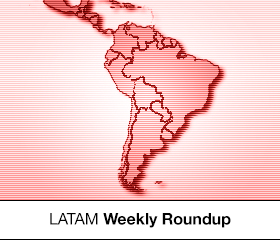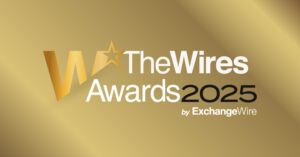Brazil Debates New Ad Tech Regulation; Chile’s 4G More Than Doubles
by on 18th Jan 2016 in News

This week’s LATAM RoundUp brings the story of a local investigation of online crime in Brazil, which could generate a new regulation for ad tech as it seeks to punish companies involved in ad trading in illegal webpages; mobile numbers in Brazil and Chile, which had a strong increase of 4G connections; Google to launch its startup accelerator in Brazil; and, finally, IAB Brazil’s initiative to contribute with local education in programmatic media.
Brazilian Congressman Suggests Banning Ads in Ilegal Pages
Esperidião Amin, Brazilian congressman who leads the major investigation about cybercrime and web automation, suggests a new local regulation that will give the federal government more power to punish companies involved in placing ads in web pages that host illegal content.
According to Amin, the idea is to create ways that will punish funding of ilegal online activities — and advertising is one of them. The main challenge, obviously, is to develop a law able to keep up with the pace of new technologies.
Last October, during one of the sessions, another congressman, Sandro Alex, had already attacked automated ad trading — accusing ad tech to allow government ads in illegal pages, hosting pirate content, for example.
The investigation is ongoing since August 2015, and investigates online crime in Brazil. The deadline for the final report is in 60 days. The outcome will include an analysis with the 50 biggest pirate websites in the country, which together account for more than one billion impressions.
With information from Agência Câmara
Latin American Mobile Numbers
4G connections more than doubled between 2014 and mid-2015 in Chile. In 2014, there were just half a million 4G subscriptions. In June 2015, the number reached 1.1 million. The total number of mobile broadband connections in the country rose from nine million to 9.4 million over the same period.
eMarketer’s latest numbers, a compilation of data from Subsecretaría de Telecomunicaciones de Chile (SUBTEL), show a little drop in mobile connections since 2014, to 23.3 million total in the country. As Chile’s mobile connection reach is above 100% of the population, this decrease means that users of multiple phones are likely cutting back.
Additionally, the increase in 4G connections caused a dip in the 3G mobile users.
eMarketer estimates that Chile will end 2016 with 13 million mobile users, up from 12.8 million in 2015, of which approximately eight million will be smartphones.
Another eMarketer report showed that more than 90% of mobile internet users in Brazil, up to 34 years old, have a smartphone. The report considers recent researches from Mobile Marketing Association (MMA), Millward Brown, Netquest, Adsmovil, Mirum, ROIx and Zenvia.
Tablet’s penetration reaches 50% of the country, when considering 35 and over.
Yet, getting the user’s attention is a challenge: although most mobile internet users say they pay attention to ads at least sometimes, just a few said they do it always.
Brazil to Host Google Launchpad Accelerator
Brazil is one of the host countries of Google Launchpad Accelerator, to boost local startups. The program’s budget is USD$1m (approximately £700k). India and Indonesia are the other locations that will host the initiative, focused mainly in mobile apps, which can include programmatic technologies.
The accelerator will be in a building near Paulista Avenue, in Sao Paulo — a different location than Google’s HQ.
IAB Brazil to open new Programmatic Media course
IAB Brazil announced a new group for its Programmatic Media Course in February, which became a frequent product in IAB’s portfolio.
The course is led by industry’s members from several companies — ad techs, such as Xaxis and Tail Target, but also publishers, such as Estadão. IAB Brazil is targeting students and young professionals that need a better understanding of programmatic media, with a pre technical knowledge of media and marketing.








Follow ExchangeWire